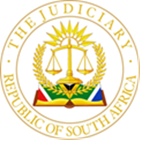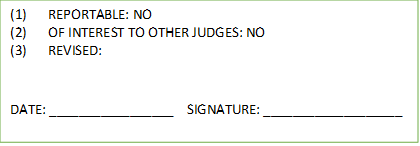REPUBLIC OF SOUTH AFRICA

IN THE HIGH COURT OF SOUTH AFRICA
GAUTENG LOCAL DIVISION, JOHANNESBURG
CASE NO: 2020/23294
(1) REPORTABLE: NO (2) OF INTEREST TO OTHER JUDGES: NO (3) REVISED ………………………… ………………………………. DATE SIGNATURE | |||
In the matter of: | |||
SUHAIL ESSACK | First Plaintiff | ||
NASEERA CASSIM | Second Plaintiff | ||
And | |||
SUN INTERNATIONAL SOUTH AFRICA (PTY) LTD | First Defendant | ||
NORTH WEST GAMBLING BOARD | Second Defendant | ||
NATIONAL GAMBLING BOARD | Third Defendant | ||
JUDGMENT

BESTER AJ
[1] The plaintiffs sued the first defendant for losses incurred by the first plaintiff gambling at Sun City, a casino owned by the first defendant. The first defendant delivered an exception to the amended particulars of claim.
[2] In a judgment dated 24 May 2022, I upheld the exception. Pursuant thereto, the plaintiffs delivered an application for leave to appeal. At the hearing of that application, Mr Pincus SC informed me that the second plaintiff had withdrawn her application for leave to appeal and tendered the wasted costs. Thus, only the first plaintiff persists with the application.
[3] The first plaintiff seeks leave to appeal both on the basis that the appeal would have a reasonable prospect of success,1 and that there is some other compelling reason why the appeal should be heard.2
[4] Mr Pincus SC accepted that the only statutory provisions relied upon by the first plaintiff for his attempted statutory claim, are the provisions of North West Gambling Regulation 23.3 He correctly pointed out that the particulars of claim under scrutiny ought to be considered in the context of two alternatives: a claim based on the breach of the statutory duties per se, as well as a claim for the negligent breach thereof. However, I remain unconvinced that an appeal would have reasonable prospects of success.
[5] Regulation 23 imposes a duty on the first defendant, as licensee, to prevent identified excluded persons from entering the premises,4 and prohibits it from knowingly allowing an excluded person to partake in any gambling.5 Mr Pincus accepted that knowledge on the part of the first defendant forms the basis of both regulations 23(1) and 23(2). Thus, to rely on either the mere breach of these duties, or on their negligent breach, the first plaintiff has to plead the requisite knowledge on the part of the first defendant. He has not done so. I might add that the first plaintiff in any event has not pleaded that the first defendant was negligent, nor presented any averments in support thereof.
[6] As for the proposed claim based on Aquilian liability, Mr Pincus SC readily accepted that a development of the common law would be required in this regard. Yet again the first plaintiff is faced with a case that he has not pleaded. The common law cannot be developed in a factual vacuum.6 A party relying on the development of the common law should plead that case.7 As Mr Friedman, who appeared for the first defendant, rightly pointed out, even at this stage the first plaintiff has not set out what the development would entail.
[7] The first plaintiff argued that I wrongly relied upon the Junmao case.8 The argument advanced, was that the Junmao decision did not take into account the current National Gambling Act,9 which only came into operation after the hearing of that matter. In particular, reliance was placed on section 16. The first hurdle faced by the first plaintiff is obvious: he has not pleaded any reliance on this section. Secondly, he has not shown how this section affords him a remedy within the context of North West Gambling Regulation 23.
[8] Essentially, the first plaintiff seems to rely on section 16 of the National Gambling Act in an effort to counter the conclusion I reached that there is no provision in terms of which the converse of what the first plaintiff claims, namely repayment of winnings by him to the first defendant, could take place. As Mr Friedman pointed out, section 16 however is not of assistance to the first plaintiff, because it deals with an ‘excluded person’, which is defined as a person excluded in terms of the National Gambling Act. Because no National Register, required in terms of the National Gambling Act, has yet been established, section 16 is in any event not practicably enforceable. I should add that this section merely provides that a person may not knowingly pay any winnings to an excluded person, and that a debt incurred by an excluded person is not enforceable. Neither of these provisions however deal with reimbursements.
[9] In the result, I am of the opinion that the proposed appeal would not have a reasonable prosect of success.
[10] The first plaintiff also sought to obtain leave to appeal on the basis that there is a compelling reason to do so. This is so, contends the first plaintiff, because the matter raises novel legal issues of public importance. However, the only question he actually identified as novel, was “questions concerning the development of the common law”. As pointed out above, these questions have not been formulated, and have not been pleaded. It would not be useful or proper to allow an appeal in a vacuum. I am therefore of the opinion that there is no compelling reason why the appeal should be heard.
[11] In the result, the application for leave to appeal is dismissed with costs.
______________________________________
A Bester
Acting Judge of the High Court of South Africa
Gauteng Local Division, Johannesburg
Heard: 23 March 2023
Judgment: 15 November 2023
Counsel for the First Plaintiff: Adv S Pincus SC
Instructed by: Hajibey-Bhyat Inc
Counsel for the Excipient: Adv A Friedman
Instructed by: Herbert Smith Free Hills South Africa Attorneys Inc
1 Superior Courts Act 10 of 2013, Section 17(1)(a)(i).
2 Section 17(1)(a)(ii).
3 North West Gambling Regulations, 2002, published under GN353 of 2002 in PG5823 of 25 November 2002, as amended.
4 Regulation 23(1).
5 Regulation 23(2).
6 Member of the Executive Council for Health & Social Development, Gauteng v DZ obo WZ (Member of the Executive Council for Health, Eastern Cape and Another as amici curiae) 2017 (12) BCLR 1528 (CC) in paras 27 – 33.
7 Khumalo Masondo Attorneys Inc v Hahleketa Trading CC 2018 JDR 0872 (GP) in [12]; Cajiao v Cajiao 2022 JDR 3704 (GJ) in [28]; Everfresh Market Virginia (Pty) Ltd v Shoprite Checkers (Pty) Ltd 2012 (1) SA 256 (CC) in paras 63 – 66; Crown Restaurant CC v Gold Reef City Theme Park (Pty) Ltd 2008 (4) SA 16 (CC).
8 Junmao v Akani-Egoli (Pty) Ltd t/a Gold Reef City Casino and Theme Park 2004 JER 0665 (W).
9 National Gambling Act, 7 of 2004.
Cited documents 4
Judgment 3
- Crown Restaurant CC v Gold Reef City Theme Park (Pty) Ltd [2007] ZACC 2 (6 March 2007)
- Everfresh Market Virginia (Pty) Ltd v Shoprite Checkers (Pty) Ltd [2011] ZACC 30 (17 November 2011)
- Member of the Executive Council for Health and Social Development, Gauteng v DZ obo WZ [2017] ZACC 37 (31 October 2017)


